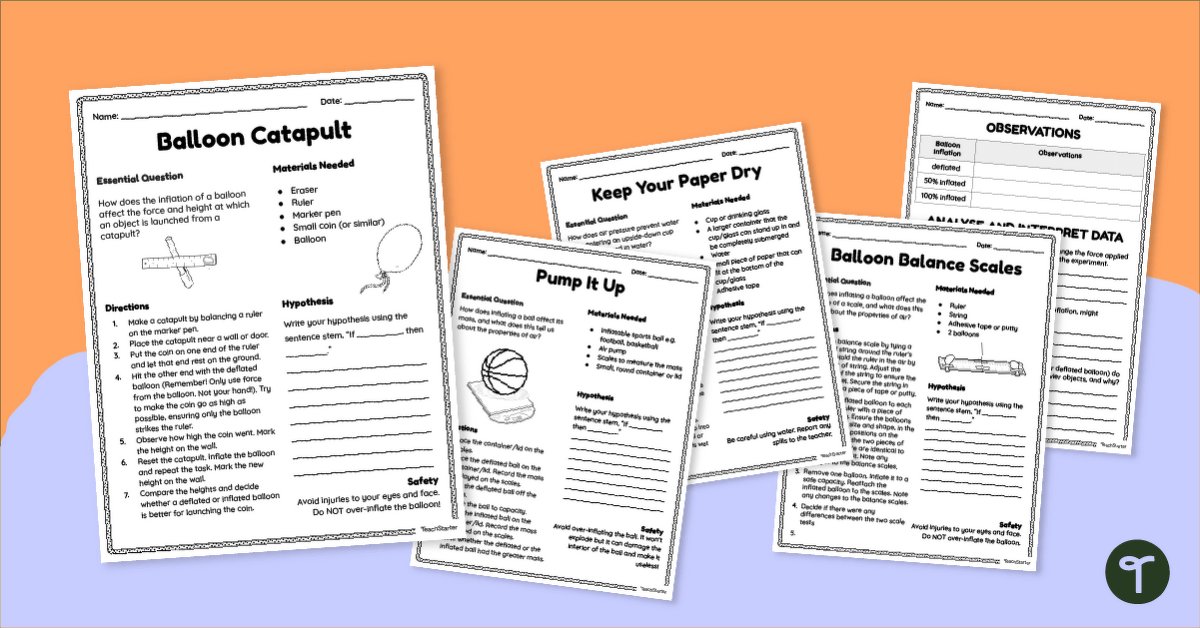Explore the physical properties of gases and discover that air has mass with a set of 4 matter experiments for kids.
Does Air Have Mass? Let’s Find Out!
Get ready to amaze your students when they realise that, Yes, air has mass. Even though we can’t see it, the air is made up of molecules that take up space and have weight, which gives it mass. This year, we’re excited to help you amaze and astound your students as you dive into the world of solids, liquids, and gases with brand-new worksheets, games, and Matter Science Experiments for Kids!
Bring Science to Life With Our Matter Science Investigation Activities!
If you’re looking for a way to bring your science lessons to life, you’ve found the perfect resource to add to your science lesson plans. We’re happy to share a brand new set of printable science experiments that will help your students discover that air has mass—even though they can’t see it! These hands-on activities are designed to engage, astound, and reinforce key scientific concepts for young learners. The experiments included focus on the following essential questions:
- How does inflating a balloon affect the balance of a scale, and what does this reveal about the properties of air?
- How does inflating a ball affect its mass, and what does this tell us about the properties of air?
- How does air pressure prevent water from entering an upside-down cup when submerged in water?
- How does inflating a balloon affect the balance of a scale, and what does this reveal about the properties of air?
Each two-page printable science experiment comes with:
- Complete, easy-to-follow instructions to guide your students through the process
A detailed materials list to ensure everything is ready to go
A data collection and analysis worksheet to help students track their findings and draw conclusions
Download and Print!
This resource is available as a quick-print PDF file as well as an editable Google Slides resource. To get your copy, click the dropdown arrow on the download button and select your file preference.
This resource was created by Kaylyn Chupp, a teacher and Teach Starter Collaborator.
Don’t stop there! Make sure you check out these matter activities that really matter!

teaching resource
What's the Matter? Worksheets
Help your students differentiate between states of matter (solid, liquid, and gas) with a set of printable ‘What’s the Matter?’ Cut and Paste worksheets.

teaching resource
Understanding States of Matter - Cut and Paste Worksheet
Engage your students with an interactive activity where they cut and paste to match the properties of solids, liquids, and gases.

teaching resource
Year 3 Matter Worksheets - Properties & Changes
Reinforce your students' understanding of the properties of matter and changes in state with a set of printable differentiated Matter Worksheets.


0 Comments
Write a review to help other teachers and parents like yourself. If you'd like to request a change to this resource, or report an error, select the corresponding tab above.